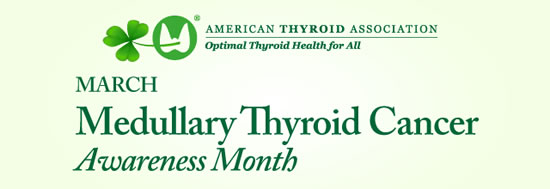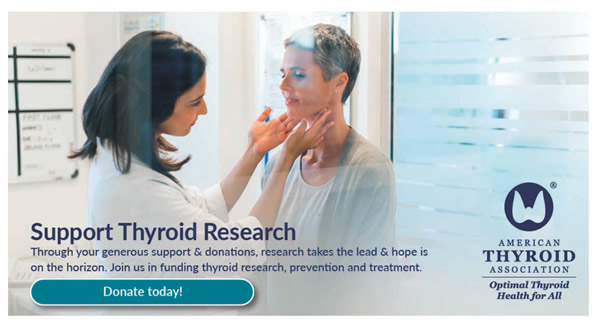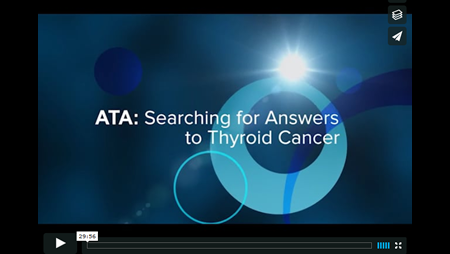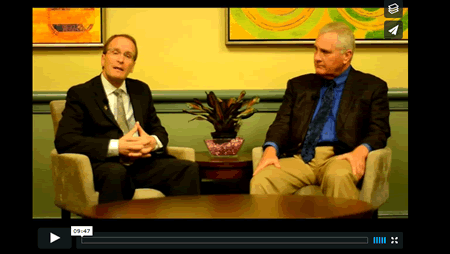Clinical Thyroidology for the Public summarizes selected research studies discussed in the previous month’s issue of Clinical Thyroidology, an official publication of the American Thyroid Association. Editor-in-chief, Alan Farwell, MD, FACE
Available in pdf format for saving and printing and Web page format for viewing online
PDF Format for Saving and Printing
Clinical Thyroidology for the Public Volume 14 Issue 3 (PDF file, 6.87 MB)
TABLE OF CONTENTS – Web Format
HYPOTHYROIDISM
A third of patients treated for hypothyroidism may not require thyroid hormone therapy
Thyroid hormone is one of the most commonly prescribed medications and, once started, usually results in lifelong treatment. However, there are also situations where the hypothyroidism may be short-lived and temporary, so long-term treatment is not needed. This study was done to obtain information on when thyroid hormone can be successfully and safely stopped.
Burgos N et al 2020 Clinical outcomes after discontinuation of thyroid hormone replacement—A systematic review and meta-analysis. Thyroid. Epub 2020 Nov 9. PMID: 33161885
(PDF File for saving and printing, 730 KB)
HYPOTHYROIDISM
A review of the 2020 guidelines for congenital hypothyroidism
Congenital hypothyroidism is a type of hypothyroidism that is present at birth and occurs in 1:1700 newborns. Newborn screening allows for early diagnosis and treatment of congenital hypothyroidism to avoid severe developmental delay. Early treatment of congenital hypothyroidism and close monitoring to normalize the TSH level is important. The purpose of this study is to update the guidelines for the diagnosis and treatment of congenital hypothyroidism.
van Trotsenburg AS et al. 2020 Congenital hypothyroidism: A 2020 consensus guidelines update An ENDOEuropean Reference Network (ERN) initiative endorsed by the European Society for Pediatric Endocrinology and the European Society for Endocrinology. Thyroid. Epub 2020 Dec 3. PMID: 33272083.
(PDF File for saving and printing, 1.22 MB)
HYPOTHYROIDISM
Treating younger patients with subclinical hypothyroidism may decrease the risk of death from heart disease
Although many studies have shown that treating patients with subclinical hypothyroidism with thyroid hormone can improve some risk factors for heart disease, the data on whether this improves death from heart disease or death from any cause has not been clear. The authors of this study performed a large review of all the published studies done on this topic and combined the information from those studies to help answer this question.
Peng CC et al 2021 Association of thyroid hormone therapy with mortality in subclinical hypothyroidism: A systematic review and meta-analysis. J Clin Endocrinol Metab 106:292– 303. PMID: 33107557.
(PDF File for saving and printing, 736 KB)
THYROID CANCER
Defining significant changes in ultrasound appearance during active surveillance of small papillary thyroid cancers
Active surveillance of thyroid cancer has become more common as an alternative to surgery. If the small cancer grows during active surveillance, then surgery is recommended. The present study looks at how consistent and reliable measurements are between different operators of the ultrasound equipment.
Chung SR et al 2020 Interobserver reproducibility in sonographic measurement of diameter and volume of papillary thyroid microcarcinoma. Thyroid. Epub 2020 Dec 7. PMID: 33287640.
(PDF File for saving and printing, 738 KB)
THYROID NODULES
Factors predicting thyroid surgery in patients with indeterminate thyroid nodules with a ‘benign’ molecular test result
If a thyroid nodule biopsy result is indeterminate, molecular testing is usually done to get additional information on the potential risk of cancer in the nodule. The clinical implication of a ‘benign’ result of molecular testing would be that a nodule may be less likely to be a cancer and that thyroid surgery may potentially be avoided. In this study, the authors examined how often patients with an indeterminate thyroid nodule biopsy result and a ‘benign’ result on an Afirma™ molecular test underwent thyroid surgery.
Endo M et al 2020 Features of cytologically indeterminate molecularly benign nodules treated with surgery. J Clin Endocrinol Metab 105:dgaa506. PMID: 32772084.
(PDF File for saving and printing, 832 KB)
THYROID CANCER
Thyroid cancer in solid organ transplant recipients
As more patients are receiving organ transplants, it is important to understand the existence and risks of thyroid cancer in this patient population. No clear data exist on the outcome of patients with a history of thyroid cancer who undergo subsequent solid organ transplantation. This study was performed to characterize the prognosis, recurrence, and survival of patients with thyroid cancer undergoing solid organ transplantation and to determine the risk and prognosis of thyroid cancer in transplant patients.
Webb C et al 2020 Is thyroid cancer prognosis affected by solid organ transplantation? Surgery. Epub 2020 Aug 16. PMID: 32814633.
(PDF File for saving and printing, 737 KB)









